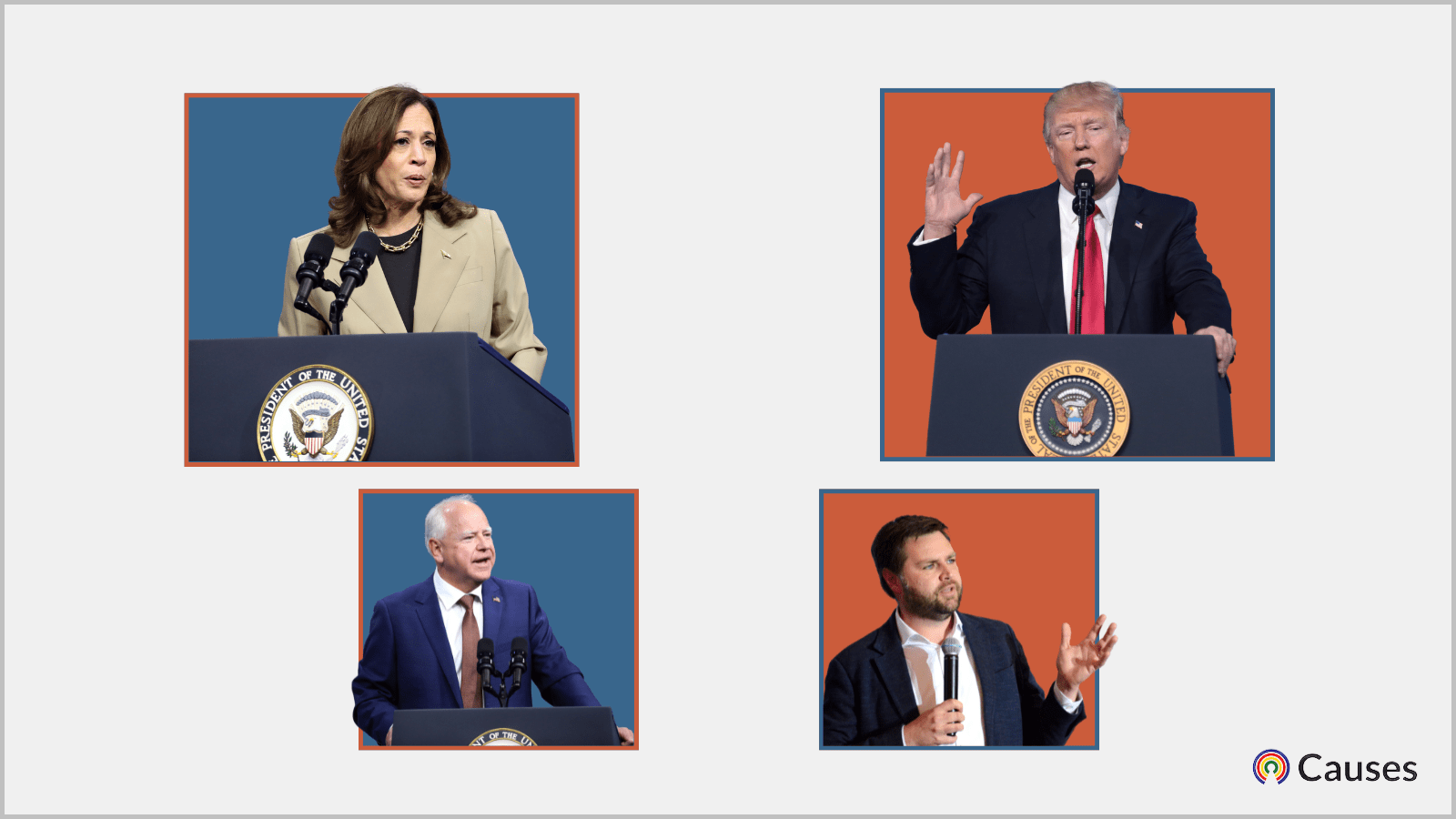Civic Register
| 8.13.21

What is Budget Reconciliation?
Do you support or oppose the budget reconciliation process?
What is budget reconciliation?
- Budget reconciliation is a fast-track process Congress can use to enact policies related to spending, tax revenues, the deficit, and/or the debt limit based on the fiscal goals included in a congressional budget resolution.
- The primary advantage of a reconciliation bill is that it’s exempt from the legislative filibuster in the Senate, so it only needs a simple majority for approval rather than needing to clear a 60 vote threshold.
- However, budget reconciliation bills can’t contain “extraneous” provisions that don’t directly relate to fiscal policy, which are prohibited by the Senate’s so-called “Byrd rule.”
- The budget reconciliation process has been used a number of times to enact significant legislation, including the Affordable Care Act (aka Obamacare) during the Obama administration in 2010 and the Tax Cuts and Jobs Act during the Trump administration in 2017.
How does the reconciliation process work?
- The process begins with both chambers of Congress adopting a budget resolution for a fiscal year that contains reconciliation instructions for committees to draft legislation that achieves the stated fiscal goals in terms of spending, tax revenues, the deficit, and/or the debt limit.
- While a traditional budget resolution is intended to serve as a fiscal blueprint for the next decade, the reconciliation instructions in a budget resolution that’s being used to trigger the reconciliation process are the primary focus of the resolution.
- Once the budget resolution is adopted, the committees draft their components of the reconciliation bill itself pursuant to the fiscal instructions in the resolution. Those committees then send their bills to the Budget Committee, which combines them into a single omnibus bill that goes to the floor for consideration.
- When the Senate considers both the initial budget resolution and the subsequent reconciliation bill, it holds an open-ended “vote-a-rama” on amendments in which senators can force votes on as many amendments as they want to bring forth. Vote-a-ramas have historically lasted for hours, sometimes all night, and feature dozens of votes (the record for vote-a-rama roll call votes is 44).
- In some cases, the House and Senate may pass different versions of a reconciliation bill, in which case they can form a conference committee to produce what’s known as a conference report that contains compromise legislation negotiated by the two chambers. Debate on a reconciliation conference report is limited to 10 hours in the Senate.
- A budget resolution can technically be revised after adoption with new reconciliation instructions. However, the Senate’s parliamentarian found that the chamber would be required to move the revised budget resolution through the Budget Committee and go through a new vote-a-rama on the floor. Further, the parliamentarian found that the reuse of a budget resolution for reconciliation should only be used in “extraordinary circumstances and not for things that should have been or could have been foreseen and handled” previously.
What is the “Byrd rule”?
- Named after the late Sen. Robert Byrd (D-WV), who led the adoption of the rule in 1985 in response to Congress using reconciliation for non-fiscal policy items, the Byrd rule prohibits the inclusion of extraneous, non-germane policies in reconciliation bills.
- Under the Byrd rule, a provision is deemed extraneous if:
- The provision doesn’t change spending or tax revenues;
- Increases in spending and decreases in revenues aren’t in compliance with committee instructions;
- A provision is outside the committee’s jurisdiction;
- Spending or revenue changes are incidental to non-budgetary parts of a provision;
- The deficit would increase beyond the “budget window” covered by the bill (the budget window includes the current fiscal year and has to cover at least the four following years, but may cover 11 or more total fiscal years); and
- It makes changes to Social Security.
- Violations of the Byrd rule are determined by the Senate parliamentarian and Senate Budget Committee staff in a review process known as the “Byrd bath” ― while senators can raise a point of order against provisions they believe to be non-compliant. Lawmakers can remove provisions that violate the rule (known as “Byrd droppings”) from the final bill, or they can vote to waive the rule which requires 60 votes in the Senate.
— Eric Revell
(Photo Credit: iStock.com / Douglas Rissing)
The Latest
-
 Your Share of the National Debt is ... $105,000The big picture: The U.S. federal deficit for fiscal year 2024 hit a staggering $1.8 trillion, according to the Congressional read more... Deficits & Debt
Your Share of the National Debt is ... $105,000The big picture: The U.S. federal deficit for fiscal year 2024 hit a staggering $1.8 trillion, according to the Congressional read more... Deficits & Debt -
 Election News: Second Trump Assassination Attempt, and Poll UpdatesElection Day is 6 weeks away. Here's what's going on in the polls and the presidential candidates' campaigns. September 24 , read more... Congress Shenanigans
Election News: Second Trump Assassination Attempt, and Poll UpdatesElection Day is 6 weeks away. Here's what's going on in the polls and the presidential candidates' campaigns. September 24 , read more... Congress Shenanigans -
 More Women Face Pregnancy-Related Charges After Roe’s Fall, Report FindsWhat’s the story? A report released by Pregnancy Justice, a women's health advocacy group, found that women have been read more... Advocacy
More Women Face Pregnancy-Related Charges After Roe’s Fall, Report FindsWhat’s the story? A report released by Pregnancy Justice, a women's health advocacy group, found that women have been read more... Advocacy -
 IT: 🗳️ A Guide to National Voter Registration DayWelcome to Tuesday, September 17th, voters... Today is National Voter Registration Day, a day dedicated to encouraging you to read more...
IT: 🗳️ A Guide to National Voter Registration DayWelcome to Tuesday, September 17th, voters... Today is National Voter Registration Day, a day dedicated to encouraging you to read more...
 Climate & Consumption
Climate & Consumption
 Health & Hunger
Health & Hunger
 Politics & Policy
Politics & Policy
 Safety & Security
Safety & Security

If the Democrats want to pass it they can do it on their own.
Budget reconciliation is stupid and so is the 60 vote rule. Whatever happened to majority rules. Oh, I forgot we don't do that even in the presidential election.
This is a Republic....not a Pure Democracy. Please protect the minority interests of US Citizens.
I am a little concerned about all theses changes to social security as we are all mostly going to retire one day and need the support and the disabled cannot support as well for themselves. I remember how bad my grandparents had it and they were really good people who didn't deserve there last days on earth being so difficult after all they have done for others. BUT it only works right when there is a completely equal chance of things with a 50 to 51 to pass a law ruling
it seems a way to circumvent the intent of getting congress to work together and instead go down party lines to force whichever party is in control to get their way. Its getting so, with gridlock, that possibly the only way our govt can work would be do away with elections and just rotate every 4 years giving one party then the other full control... :(
ALL AMERICANS WILL BENEFIT FROM IT'S USE NOW! UNliKE when the gop used it to pass more wealth to the wealthy and corporations in their tax bill!!!!!!!
I would like Congress to return to a department by department funding. Going each of the Federal Agencies scrutiny. This bundling approach creates a lack of oversight and supports unnecessary spending. Oppose the reconciliation!
The reconciliation process is just an excuse for those marginally in power to push through their agenda over the objections of a large minority. All too often a 51% majority trample the other 49%. That is simply not right regardless of who is in which camp. If there is not a significant majority is support of a policy, then it should be tabled until significant support is built rather than just running over fellow citizens with positions that deserve respect and consideration and who just might be right.
US Dollar Rain Earns up to $550 to $750 per day by Google fantastic job opportunity provide for our community peoples who’s already using Facebook to earn money 85000$ every month and more through Facebook and Google new project to create money at home within few hours. Everybody can get this job now and start earning online by just open this link and then go through instructions to get started......... :* ══════HERE ► www.Nifty2.com
Absolutely!! Especially since we are dealing with a bunch of crooked, corporate sponsored Congressmen and women. Who could give a rats ass about their constituents
Any Congress person who supports reconciliation is a traitor to the people who voted for them.
It's a better way to overcome the gridlock of a two-party system than those filibusters.
I support the budget reconciliation. It's the only way to get things done. The Republicans are obstructing everything. We either have to use the Reconciliation or get rid of the filibuster. We need everything that is in this bill. As well as the John Lewis voting rights bill & S1.
I support the budget reconciliation. It's the only way to get things done. The Republicans are obstructing everything. We either have to use the Reconciliation or get rid of the filibuster. We need everything that is in this bill. As well as the John Lewis voting rights bill & S1.
The police beating terrorist party has made it clear throughout the past 4 or 5 decades that the only interest they have is in cutting taxes for the rich and corporations rather than supporting any policies that help middle and lower class populations. Families used to be able to thrive with one income now they try to just survive on two parents working. The system has been rigged by right wing policies that benefit only the donors of the corrupt politicians.
The reconciliation process, originally intended to keep the Congressional budget process from becoming bog down, is now being employed by the Democrats as a partisan sledgehammer. Many Democrats want to illuminate the filibuster rule in the Senate because it interferes with their desire for one-party rule. Perhaps it is the reconciliation process that we should be illuminating to prevent one-party rule. In his inaugural speech, Biden pledged to unify the country. Apparently, Nancy Pelosi and Chuck Schumer did not get the memo.
I'm tired of these legislative shortcuts. Work together to get it right the first time! You should ALL be booted out of office. We need term limits!
Republicans are unwilling and unable to participate in governance in our country. Therefore, Democrats will have to go it alone in order to work for the American people. If budget reconciliation is what it takes, then so be it. I am sick of the Republicans carping and whining and doing nothing.
When obstructions are the main focus of the Republican party, There is no other way. Obstructionism is NOT a policy.
The budget is supported by both democrat and Republican voters